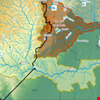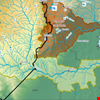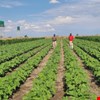
/ Southern Africa
GWPSA supports efforts to accelerate Water, Energy, & Food Nexus Investments at national, transboundary, and multi-country levels
The Global Water Partnership Southern Africa, GWPSA, is providing technical support toward the development of 8 national funding concept notes, 3 transboundary projects, and 2 multi-country funding proposals aimed at accelerating WEF investments in the region.

/ Southern Africa
COP28: Tanzania showcases the Global Water Leadership Programme’s contribution to climate-resilient water resources management
The Global Water Leadership Programme (GWL) in Tanzania has brought together a range of the country’s sectors to forge a united front against water insecurity through regular dialogue and collaboration among stakeholders.
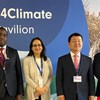
/ Global, Southern Africa
Celebration to honour winners of the Water Changemaker Innovation Awards 2023 held at COP 28
Dubai, United Arab Emirates, 11 December 2023
/ Southern Africa
Eswatini deliberates on financing for water-related climate technology
The Government of Eswatini is engaging national stakeholders on financing strategies for the 15 prioritized water-related climate technologies in the country.
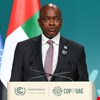
/ Global, Southern Africa
Winners of the Water Changemaker Innovations Award 2023 Announced
Dubai, United Arab Emirates, 2 December 2023
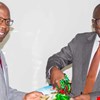
/ Southern Africa
Zambia launches National Adaptation Plan in bid to build the country’s resilience to impacts of climate change
The Government of Zambia has launched its National Adaptation Plan (NAP), a long-term Strategic Plan formulated to address identified risks and vulnerabilities in various sectors to enhance Zambia's resilience to the impacts of climate change. The NAP was developed in partnership with GWP which provided technical and project management support and the Green Climate Fund funded the development process. The NAP, launched on Tuesday, 14 November in Lusaka.
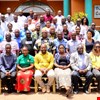
/ Southern Africa
Malawi finalises development of water & sanitation sector response strategies, holds preliminary validation workshop
Malawi has finalised the development of response strategies meant to address major challenges rocking the water and sanitation sector in the country. The strategies were being developed with the guidance of the country’s Ministry of Water and Sanitation, under the Global Water Leadership Programme (GWL) which the Global Water Partnership is implementing with funding from FCDO.
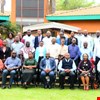
/ Southern Africa
Global Water Leadership Programme Task Force Members Trained in Developing Finance Plans
Taskforces established under the Global Water Leadership Programme, being implemented in Malawi by Global Water Partnership & UNICEF, have been trained in developing finance plans.
